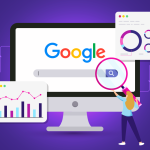Digital Marketing
- Home
- Digital Marketing
In today’s digital era, Digital Marketing strategies have become indispensable for the success of businesses. Consumers spend more time online than ever before, and brands are turning to digital channels to interact with their target audiences. Digital Marketing is not only used to sell products or services but also plays a critical role in increasing brand awareness, ensuring customer loyalty, and reaching broader audiences. In this guide, we will comprehensively cover what Digital Marketing is, how it should be implemented, and which strategies can help you achieve more successful results.

The Importance and Core Elements of Digital Marketing
Today, Digital Marketing is considered one of the key elements in strengthening brand presence and standing out in a competitive environment. Why is it so important?
- Easier Access to Your Target Audience: Through different digital channels such as search engines, social media, and email, you can easily reach potential customers.
- Right Message at the Right Time: By monitoring digital interactions, you can deliver the right message to your audience at the right moment.
- Measurable Results: In traditional marketing, measurements often rely on general estimates, whereas in digital marketing, every interaction can be translated into numerical data.
- Lower Cost: Compared to traditional media channels like TV, radio, and newspapers, digital ads are generally more affordable and can be more efficient.
The core elements of Digital Marketing can be listed as follows:
- SEO (Search Engine Optimization)
- Social Media Marketing
- Email Marketing
- Content Marketing
- Digital Advertising (PPC, Display, etc.)
- Data Analytics and Reporting
By using some or all of these elements, you can increase your brand’s online visibility, strengthen customer engagement, and boost conversion rates.
Digital Marketing and Content Marketing
Millions of pieces of content are circulating on the internet, making it increasingly difficult to capture users’ attention. Within Digital Marketing, content marketing aims to bring your target audience closer to your brand by offering them valuable information. Here are some key points of content marketing:
- High-Quality and Original Content: Prepare content that addresses users’ problems, serves as a guide, and is original.
- Regular Posting: Share content in various formats such as blog posts, videos, infographics, and e-books on a regular, planned basis.
- SEO Compliance: Optimize your content according to SEO criteria to rank higher in search engine results.
Developing a solid content strategy in the digital world is crucial for brand loyalty and awareness. For a detailed insight, feel free to check our Content Marketing Guide on our website.
Social Media Management in Digital Marketing
Social media is one of the most important platforms where your brand can make its voice heard and strengthen customer relations. As a powerful component of any Digital Marketing strategy, social media management involves the following steps:
- Platform Selection: Choose from various platforms such as Facebook, Instagram, LinkedIn, and Twitter based on where your target audience is most active.
- Content Calendar: Develop content plans and sharing calendars specific to each platform.
- Engagement and Monitoring: Remain active by responding to comments, addressing customer issues promptly, and posting regularly.
- Ads and Campaigns: By using social media ads, you can reach specific target audiences and increase sales and conversion rates.
Social media management is especially important for effective communication during crises or customer complaints and for maintaining brand reputation.
SEO Techniques in Digital Marketing
Ranking high on search engine results pages is critically important for Digital Marketing. A solid SEO (Search Engine Optimization) strategy helps you gain organic traffic and increase brand visibility. What should you do for effective SEO?
- Keyword Research: Identify the search terms used by your target audience and integrate them into your content.
- Quality Backlinks: Backlinks from reliable websites increase your value in the eyes of search engines.
- On-Page Optimization: Optimize elements such as URL structure, title tags (title, meta description), and image alt tags.
- Speed and User Experience: A mobile-friendly site that loads quickly can make a significant difference in your SEO performance.
SEO requires continuous monitoring and improvement due to ever-evolving algorithms and growing competition. Therefore, you should regularly analyze your site and closely follow new trends.
Tips to Become a Digital Marketing Expert
If you want to specialize in Digital Marketing, you need to focus on developing yourself in various disciplines. Here are some tips:
- Start with the Basics: Master the fundamentals of SEO, SEM (Search Engine Marketing), email marketing, and social media management.
- Certifications and Training: Obtaining official certifications from platforms like Google Ads and Google Analytics will strengthen your career prospects.
- Project Experience: Gain real-world experience through internships, freelance work, or volunteer projects.
- Analytical Mindset: Constantly improve your analytical skills to read, interpret data, and create strategies.
Becoming a Digital Marketing expert not only requires technical knowledge but also the ability to generate creative ideas, make quick decisions during a crisis, and keep up with technological advances.
Audience Analysis and Segmentation
In digital marketing, success hinges on having a clear understanding of who your target audience is and what needs they have. Segmentation involves classifying different customer groups by specific characteristics and creating marketing messages tailored to each group.
- Demographic Segmentation: Classifying by parameters such as age, gender, and income level.
- Geographic Segmentation: Developing location-based marketing strategies.
- Behavioral Segmentation: Classifying customers based on their purchase history, interests, and online behavior.
Audience analysis helps ensure your Digital Marketing strategies reach the right people and allows for more efficient use of your budget.
Creating a Digital Marketing Strategy
A Digital Marketing strategy clarifies your goals and determines which channels you will use and how you will use them to achieve those goals. You can follow these steps when creating your strategy:
- Goal Setting: Set specific objectives such as increasing conversion rates, raising brand awareness, or building a loyal customer base.
- Competitor Analysis: Examine your competitors’ digital marketing activities to identify areas where you can differentiate.
- Message and Value Proposition: Clearly define your brand’s core value proposition and communication tone.
- Planning and Execution: Determine the actions you will take across various channels like social media, email marketing, and SEO.
- Measurement and Analysis: Regularly measure your strategy, make necessary adjustments, and continuously improve.
Metric Tracking and Analysis in Digital Marketing
One of the biggest advantages of Digital Marketing is that almost every step can be translated into data. Below are key metrics you should track when evaluating your strategy:
- Click-Through Rate (CTR): Shows how many people are interested in your emails or ads.
- Conversion Rate: Measures how many people took the desired action—such as making a purchase or signing up—after a campaign.
- Cost per Acquisition (CPA): Helps you understand how much each conversion costs you.
- Session Duration: Reflects content quality by showing how long visitors stay on your website on average.
Regular metric analysis makes it easier to see which strategies are working and which need revising.
Marketing Automation and Email Marketing
Automating processes in digital marketing saves both time and money. Through marketing automation tools, you can:
- Personalized Emails: Create automated email series based on customers’ interests.
- Automatic Reminders: Send automatic notifications or reminder messages to customers who abandon their shopping carts.
- Behavioral Triggers: Offer special campaigns based on user interactions on your website.
Email marketing remains one of the most powerful digital marketing tools. When well planned, it is highly effective in increasing customer loyalty and triggering repeat purchases. For more information, read our detailed guide on Marketing Automation on our website.
E-Commerce and Conversion Optimization
For businesses engaged in e-commerce, conversion optimization focuses on making it easier for visitors to complete a purchase. Here’s what to keep in mind:
- User Experience (UX): Clear, understandable, and fast product pages improve user satisfaction.
- Easy Checkout: A simple and secure checkout process reduces cart abandonment rates.
- Trust Factors: SSL certification, user reviews, and transparent return policies increase sales.
- A/B Testing: Test different designs and content to find the option that delivers the highest conversion.
If you need more details, check our comprehensive guide on E-Commerce Conversion Optimization for a deeper understanding.
Advertising Platforms and Ad Management
Digital advertising allows you to achieve quick results and introduce your brand to a wide audience. However, choosing the right platform and budget is critical:
- Google Ads: Offers the ability to reach different audiences through Search Network ads, Display ads, and YouTube ads.
- Facebook/Instagram Ads: Ideal for visually driven campaigns and demographic targeting.
- LinkedIn Ads: Provides a professional environment for B2B (business-to-business) focused campaigns.
When managing ads, it is important to continuously analyze, adjust budget allocations when needed, and test different targeting options. Instead of overspending on low returns, optimize your advertising budget with efficient strategies.
Brand Management and Effective Communication Techniques
In Digital Marketing, brand management is not just about promoting products or services. Building a brand identity and communicating it correctly to your target audience are critical steps for long-term success:
- Consistency: Maintain the same tone, visual style, and message across all digital channels to ensure brand integrity.
- Value Proposition: Emphasize what sets you apart from competitors and why your product or service should be chosen.
- Engagement-Focused: Establish two-way communication with your customers; value their feedback and highlight the human side of your brand.
Excelling at brand management helps you reap the rewards of your Digital Marketing efforts more swiftly and effectively.
Crisis Management and Online Reputation
In the digital world, reputation can be quickly built but can also suffer severe damage in an instant. A negative review, unexpected technical glitch, or misunderstood campaign can threaten your brand’s reputation. When managing a crisis, pay attention to the following:
- Quick and Transparent Communication: If there’s a mistake, own up to it and share your solutions immediately.
- Social Media Monitoring: Regularly track comments about your brand and respond promptly.
- Positive Content Creation: Maintain a sincere relationship with your customers at all times, not just during a crisis, to foster a positive brand image.
Online reputation management is vital for maintaining and enhancing consumer trust. Nowadays, users give great importance to online reviews and ratings before choosing a brand.
Future Trends and Emerging Technologies
Because Digital Marketing is a constantly evolving field, anticipating upcoming trends and adapting early can offer substantial advantages:
- Artificial Intelligence (AI) Integration: Applications of AI are increasing in personalization, customer service (chatbots), and data analysis.
- Augmented Reality (AR) and Virtual Reality (VR): These technologies will gain popularity in product trials, interactive ads, and experiential marketing.
- Voice Search Optimization: With the rise of smart speakers and voice assistants, search engine optimization will be reshaped to accommodate voice queries.
- Omnichannel Marketing: Providing a seamless experience across different digital platforms will be a key factor in boosting customer loyalty.
Staying prepared for these new technologies and adapting your existing Digital Marketing strategy to future trends will help you gain a competitive edge.
A Trusted Source
For the latest insights on the digital world and Digital Marketing trends, you can regularly follow reliable resources like Think with Google.
Conclusion
In this guide, we covered a wide range of topics—from the concept of Digital Marketing to content marketing, social media management, SEO, e-commerce, and crisis management. Running successful digital marketing campaigns requires disciplined planning, constant data analysis, and the ability to adapt quickly. By making the most of the opportunities offered by various digital platforms, you can boost your brand awareness and communicate more effectively with your target audience.
Remember, Digital Marketing is not a “set it and forget it” system; it’s essential to stay current with evolving trends and technological innovations. By regularly reviewing your strategy and using feedback and data to make improvements, you’ll increase your chances of achieving successful outcomes.







